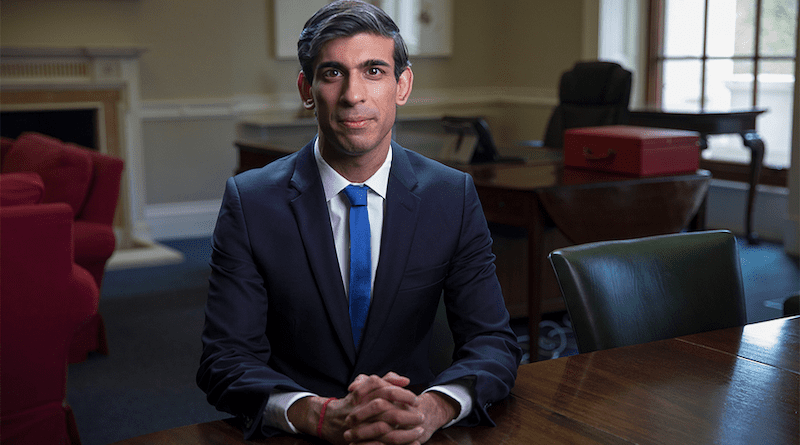Sunak Seeks Break With Troubles Of Truss Era – OpEd
By Arab News
By Andrew Hammond*
Former UK Prime Minister Harold Wilson, who won four general elections in the 1960s and 1970s, famously said that “a week is a long time in politics.”
His statement has perhaps never been more true than in recent days with the demise of Liz Truss’s short premiership, and the “fast-track” selection of Rishi Sunak as her replacement. Sunak’s prime ministership is likely to see some significant changes from the Truss period of office.
And this is not only in economic policy, given his argument that the scale of Truss’s proposed tax cuts were morally wrong when inflation is so high. He says he only favors significant tax cuts once the economy is on a stable footing again.
On climate policy, Sunak appears somewhat stronger in his commitment to UK carbon neutrality than Truss. He wants to make the nation energy-self-sufficient by 2045 with a big expansion in offshore wind farms to help deliver this goal, and on Tuesday he announced a ban on UK fracking.
That said, it is striking that Sunak does not appear as committed as even ex-premier Boris Johnson to the UK’s net-zero targets. COP President Alok Sharma, for instance, has been demoted from Cabinet, despite the next climate summit being held next month in Egypt.
Sharma, rightly, said on Tuesday in Parliament that Sunak must “explain and demonstrate” how new oil and gas exploration is in line with net-zero commitments. Sharma criticized the recently awarded 100 new UK licenses for offshore oil and gas, and highlighted a warning from the International Energy Agency that there can be no new fossil-fuel projects if the world is to meet its goal to limit global warming to 1.5C.
Whereas Truss was a Remainer in the 2016 EU membership referendum, Sunak is an original Brexiteer. It is not widely recognized that this may give him political cover for compromises with the EU, including potentially over the vexed Northern Ireland protocol.
So there will be some policy change under Sunak, and he may be able to unite the Conservatives in a way that Truss proved incapable of. Not only did Sunak win the support of more than half of the party’s MPs, he is widely seen by the Conservative membership as being the right man for the times given the economic crisis facing the nation.
His critique of Truss’s economic policy as “comforting fairy tales” has been borne out. Indeed, it was last month’s disastrous emergency-budget, which proposed turning on the fiscal taps through massive tax cuts and public spending, that spooked financial markets and sealed her political fate.
However, the broader political landscape is one of significant continuity with the Truss era. The odds are therefore not good for Sunak.
Indeed, he may have already made some first-order mistakes. A standout example is his astonishing appointment of Suella Braverman as home secretary, who resigned from this very same post last week in Truss’s government after having self-declared to committing significant breaches of the ministerial code.
The calls are already also growing for a general election, and these have particular potency as there have now been two changes of prime minister since the last national election in 2019.
This point was even made by former Conservative Cabinet minister, Nadine Dorries, who said this week that now Sunak is leader “all hell will break loose because he has no mandate from the people.”
The last time the UK was in this territory was in the pre-Second World War era when Stanley Baldwin won the 1935 election and handed power to Neville Chamberlain — who then handed power in 1940, during the war, to Winston Churchill. However, the circumstances of 2022 are different to wartime Britain in 1940, and a YouGov poll released this week found that 56 percent want an early general election.
Sunak knows that no party in modern political history has won five elections in a row, and he must now try to do this in the context of high inflation, increasing interest rates and anticipated significant further cuts in government spending. So while Sunak’s government may not implode in the same way as Truss’s, he has a massive political hill to climb, and his plan appears to try to last the course till 2024 before holding a general election. A 2023 ballot cannot be ruled out, but he appears to want to give himself as much time as possible to establish himself in office.
The opposition Labour Party, which has enjoyed a polling lead for months, takes nothing for granted given the volatile political mood. However, even if Sunak starts strongly in office, there is a growing sense in the country that the latest long era of Conservative rule is coming to an end, after almost a decade and a half in office.
- Andrew Hammond is an associate at LSE IDEAS at the London School of Economics

